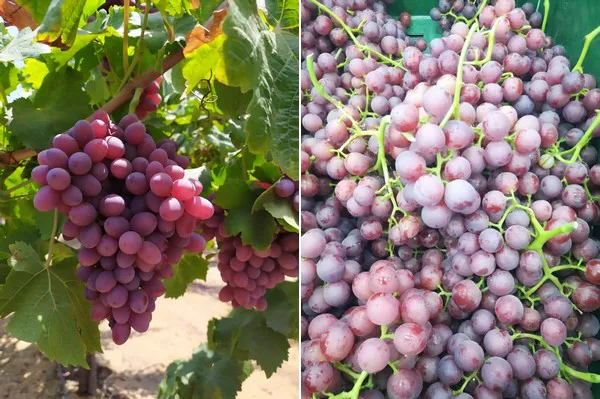The Egyptian grape season is a little over a month away, which could be challenging as it will start during the second half of Ramadan. Combine this with the curfew that is currently in place in Egypt and the lack of labor could put pressure on the market.
Despite some harsh weather conditions, the volumes of the Egyptian grape season will be comparable to last year, says Muhammad Eid, responsible for marketing and sales development at IGC: “During week 11, we had heavy rains all over Egypt of a magnitude that we’ve never experienced in this same period for the past 20 years. It hasn’t had a big impact though, as the grapes in Egypt are mostly covered with plastic. So there will be no big change in volume compared to last year. The start of the actual season is expected to be around the middle of May, which on schedule. Last year there was about a two week delay because of the cold weather and Ramadan.”

Just because the bad weather is behind the Egyptian grape growers, does not mean the hard part is over. The start of the season could be affected by Ramadan, Eid explains. Naturally the coronavirus also plays a role in the challenges the Egyptians must overcome: “There could be some start-up challenges as the harvesting will begin by the third week of May, which will be the second half of our fasting month of Ramadan. It will be followed by feast vacation during the last week of May. However, the major challenges of this season will be operational and logistical, caused by the Covid-19 virus. It has resulted in a shortage of shipping space and costs have increased consequently, borders and ports have been blocked, currency is fluctuating and basically devalued against local Egyptian Pound.”
 But even long before any produce makes it on to a freighter or airplanes, there will be problems with labor. The measures taken by the government to slow the spread of the virus also increase the costs. “Despite our sector of agricultural products export getting short-term benefits of high demands for the fresh produce and price increase, it is also creating operation challenges and cost increase. As an example, the lack of labor due to the curfew and people are staying at home. Also the supply chain and logistics are always under high pressure due to more restrictions. Our main markets are in Europe, like the Netherlands, Germany and the United Kingdom. For the future we’re targeting and work to open new channels in markets like Russia, Far East, Africa and Arabic countries.”
But even long before any produce makes it on to a freighter or airplanes, there will be problems with labor. The measures taken by the government to slow the spread of the virus also increase the costs. “Despite our sector of agricultural products export getting short-term benefits of high demands for the fresh produce and price increase, it is also creating operation challenges and cost increase. As an example, the lack of labor due to the curfew and people are staying at home. Also the supply chain and logistics are always under high pressure due to more restrictions. Our main markets are in Europe, like the Netherlands, Germany and the United Kingdom. For the future we’re targeting and work to open new channels in markets like Russia, Far East, Africa and Arabic countries.”

The Egyptian grape season would have been a great one, but with the current situation in mind, there is a lot of uncertainty, says Eid. “Under normal circumstances, the grape season should be theoretically a good one, especially for the early red grapes due to the shortage from Chile. As our peak season will be delayed until the beginning of June, due to Ramadan and the following feast holidays, this may put high pressure on the season if the Spanish and Italian productions come early like they did last year. However, any unexpected decisions for border restrictions or European ports to be closed will have a great adverse impact on the season. This is due to the very short period of our grape season, which lasts only a little over a month. The relief we rely on is that the food supply is always a priority for countries and governments, which means they will always avoid whenever possible any unnecessary decisions that may disrupt the industry. Nobody can predict what will happen next but our hopes remain for the best,” he concludes.
For more information:
Muhammad Eid
IGC
Tel: +20 10 3040 9695
Email: M.Eid@igc-ltd.com
